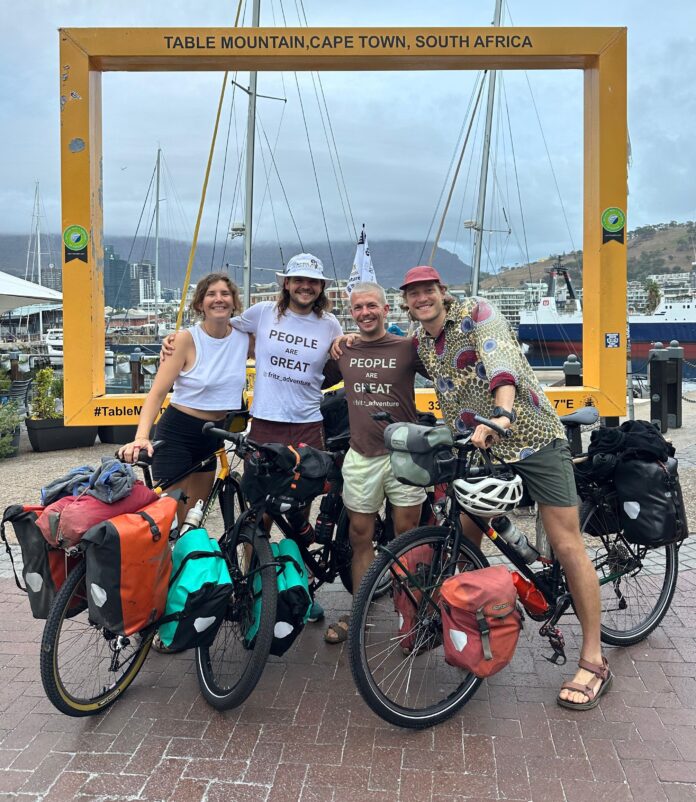
Seventy-seven days into their journey, German siblings and adventurers extraordinaire, Fritz and Max Sitte, are well on course to better the Cape to Cairo record of 301 days for running across Africa.
The brothers represent the latest in a flurry of recent attempts to claim the mark, with British athlete Russell “The Hardest Geezer” Cook having taken 352 days for his recently completed run from Cape Aghulas to Ras Angela in northern Tunisia along a route close to the western coastline of Africa, raising more than £600 000 pounds for charity.

Keith Boyd – Rainbow Runner. Photo – Keith Boyd Instagram
Just ten days ago (27 May), 57-year-old ‘British-South African’ Keith Boyd, aka ‘The Rainbow Runner’, set a record of 301 days 20 hours and 58 minutes running from Cape Town to Cairo – improving the 26-year-old record (Guiness Book of Records – GBR) by 37 days.
Boyd needed special dispensation from GBR to skip a 500km stretch in northern Ethiopia after overcoming a kidnapping incident on the road, completing his run through Sudan to Cairo before returning to complete the remaining 500km in Ethiopia.

Deo Kato – running for justice to London. Deo Kato Instagram
Ugandan-born, Deo Kato, is currently on course to become the first person to run from Cape Town to London and is telling the history of human migration along the way. He set off on July 24th last year on a 16 000 km run to London, which he hopes to complete in 381 days – symbolically the number of days African Americans in Alabama, USA, staged a civil rights protest against racial injustice in 1955.
294 days into his run this week, Kato was in northern Uganda, preparing with some uncertainty to enter South Sudan and later Sudan, Africa’s third-largest country.
And most recently, Fritz and Max Sitte are currently traversing northern Zambia at over 50km a day in their own attempt to ensure that Boyd’s new mark is short-lived.
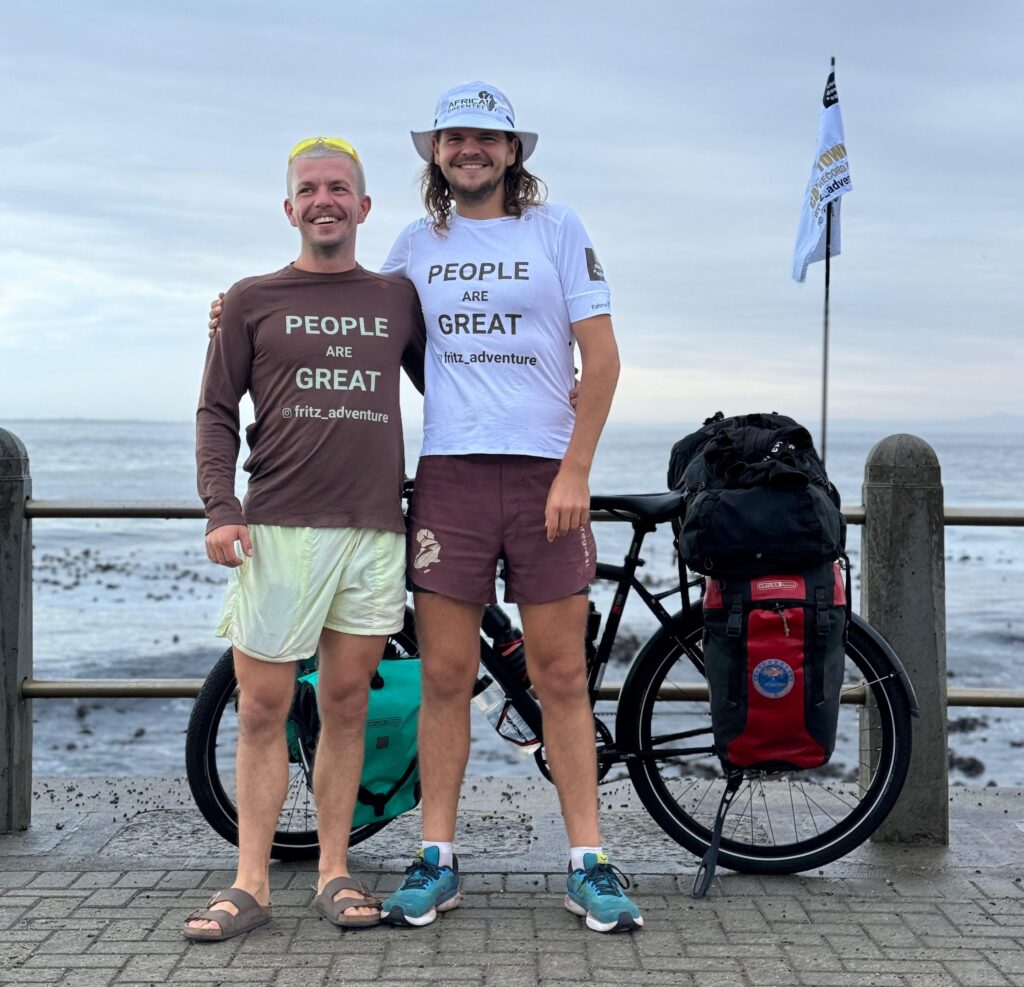
As the brothers set out from the continent’s oldest working lighthouse, Green Point Lighthouse, on Sunday 24 March, Bourne’s 26-year-old Cape Town to Cairo record of 338 days still stood, but Boyd’s new mark of 301 days, achieved shortly after Fritz and Max had passed through Lusaka in Zambia, forced the brothers to re-calibrate.
World Athletics, the International Association of Ultra-runners and the International Trail Running Association are the primary custodians of global distance running competitions and records but running across Africa represents a different level of athletics endeavour and those records are monitored and controlled by the Guiness Book of Records (GBR).
Given geographic and political complexities associated with an African traverse, various routes can be chosen. The route charted by the brothers, which takes them through just eight countries (South Africa, Botswana, Zambia, Tanzania, Kenya, Ethiopia, Sudan and Egypt), approximates 11 000km with the highest point of their journey at 3000m on the slopes of Mt Kenya.
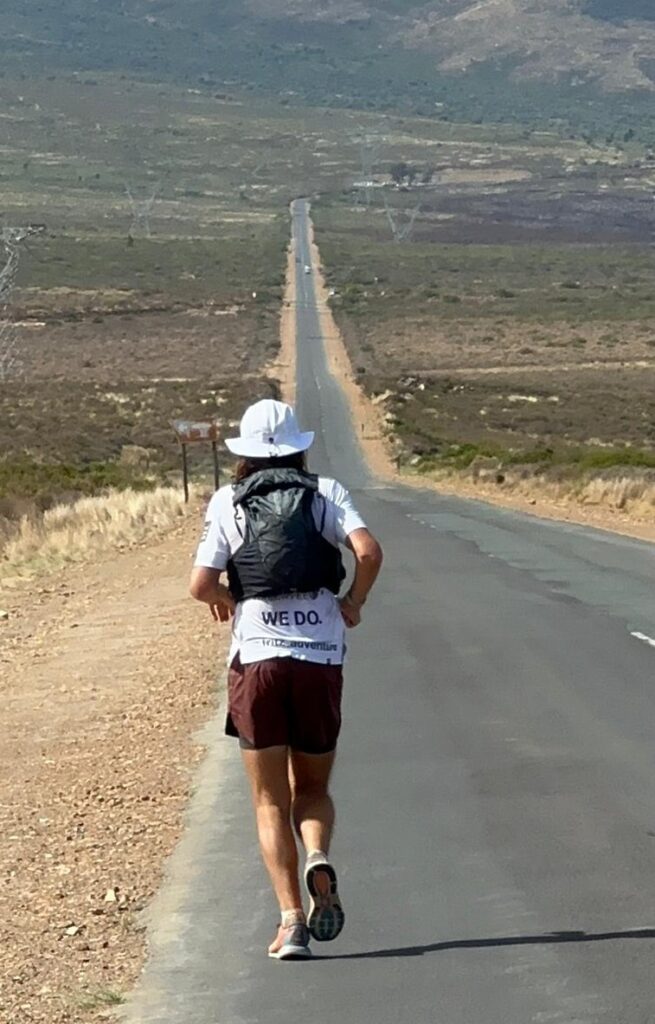
Fritz Sitte is not new to Africa and his current expedition is a logical outcome of his past connections with the continent. “I met the South African Henry Cock (son of the well-known music conductor, Richard Cock) in Rwanda where I was competing in the Iron Man,” explained Fritz the day before his departure from Cape Town.
“I was really inspired, hearing of his 2800km run around the South African coastline. He told me of his dream to run from Cape Town to Cairo one day and I was hooked.
“I spent ten months cycling around Southern Africa thinking about it. One thing which struck me was that despite all the warnings about the dangers, I only met wonderful people along the way. Most people are by nature altruistic and kind. It’s only our perceptions that are different.”
The brothers devised a plan to challenge the record, one which differed markedly from the usual tried and tested methodologies associated with such expeditions, notably in the absence of motorised support vehicles and ready-made comfortable mobile accommodation.
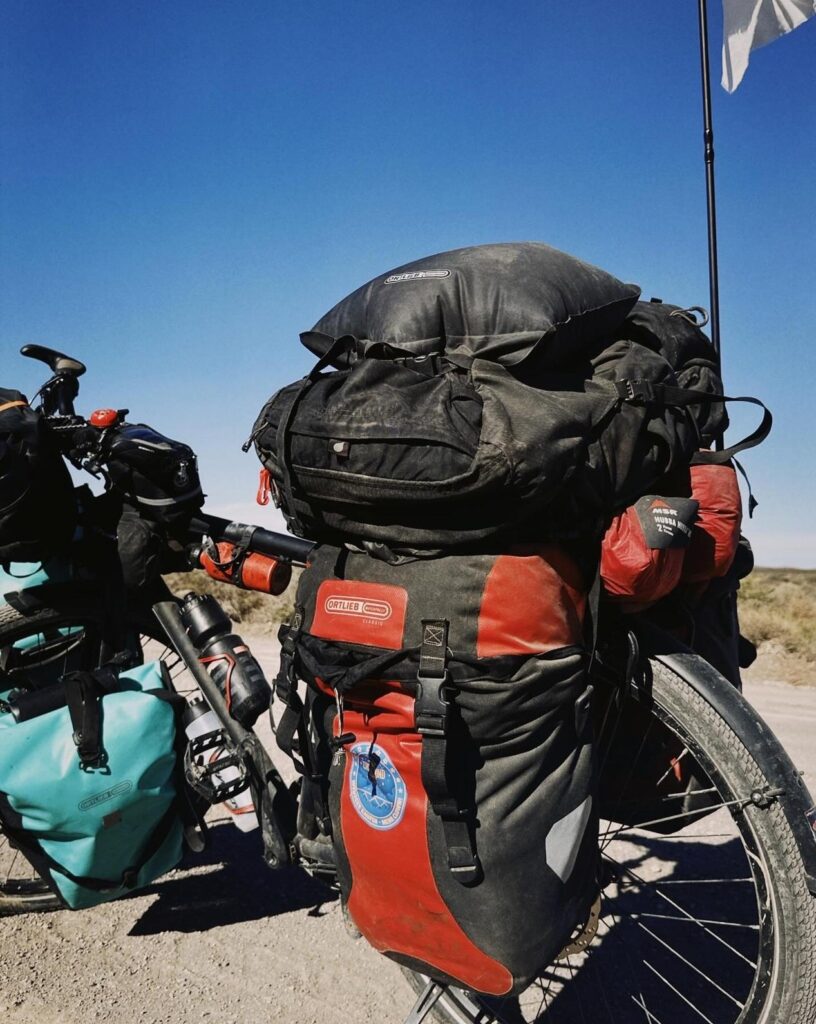
The brothers opted instead for the lightest possible footprint. Apart from welcome temporary support along the way, the sum total of the expedition’s kinetic energy derives from Fritz’ running legs and Max’s legs pedaling their support bicycle carrying a load of 75kg including two small tents.
“Here’s why we’re doing it differently,” said Fritz before they started out. “We are chasing the record but we also have many hopes and ambitions for the expedition.
“These ambitions include our respect for our Earth and all its creatures, getting to be in contact with people and the environment and emphasising simplicity and adventure – having less and sharing more. And we also want to show what people can do on their own, without extra help!”
While recognising that a single bicycle maybe considered below par for a competitive trans-African adventure, Fritz is quick to point out the advantages of the bike. “The bicycle is the most efficient transport machine ever invented,” he emphasises. “You can go farther for the same amount of energy on a bike than you can with any other means of transport.”
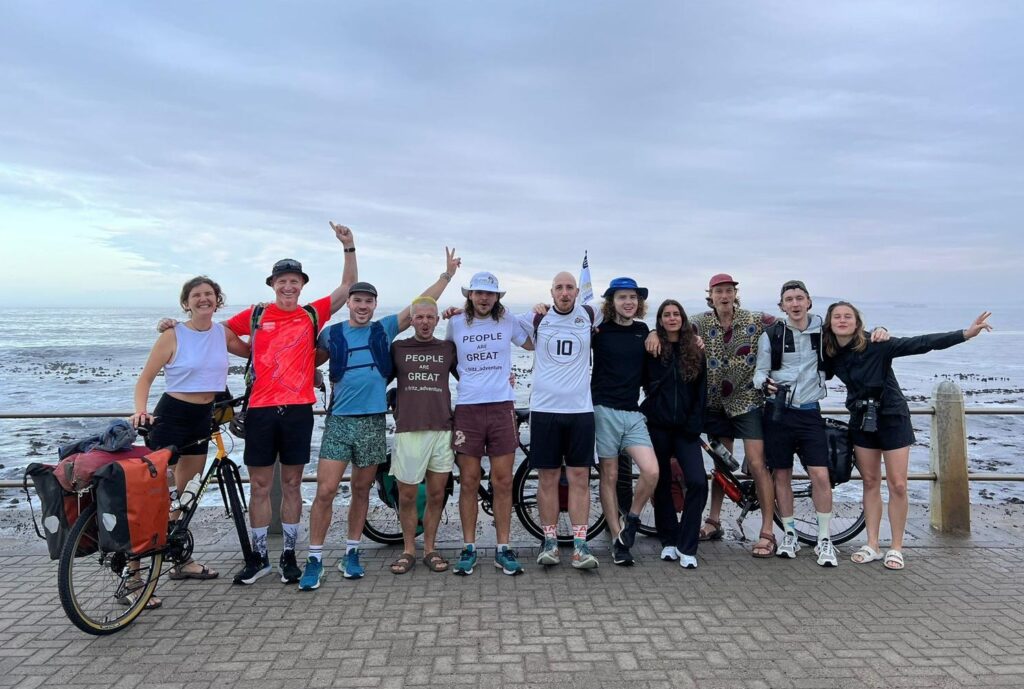
Fritz and Max set out on their journey last year but were unable to carry on when Fritz was injured near Windhoek. On that occasion, they had planned a route up the west of the continent through Namibia.
“I hurt my hip on our first attempt, which really messed up our plans,” said Fritz. “We were marooned in Windhoek, Namibia, and ultimately were forced to return to Cape Town.
“It took some time to get my head back in the game, and then I had to dive into three solid months of tough training in Cape Town. We’re not sure if my hip might start bothering me again, which is kind of stressful.
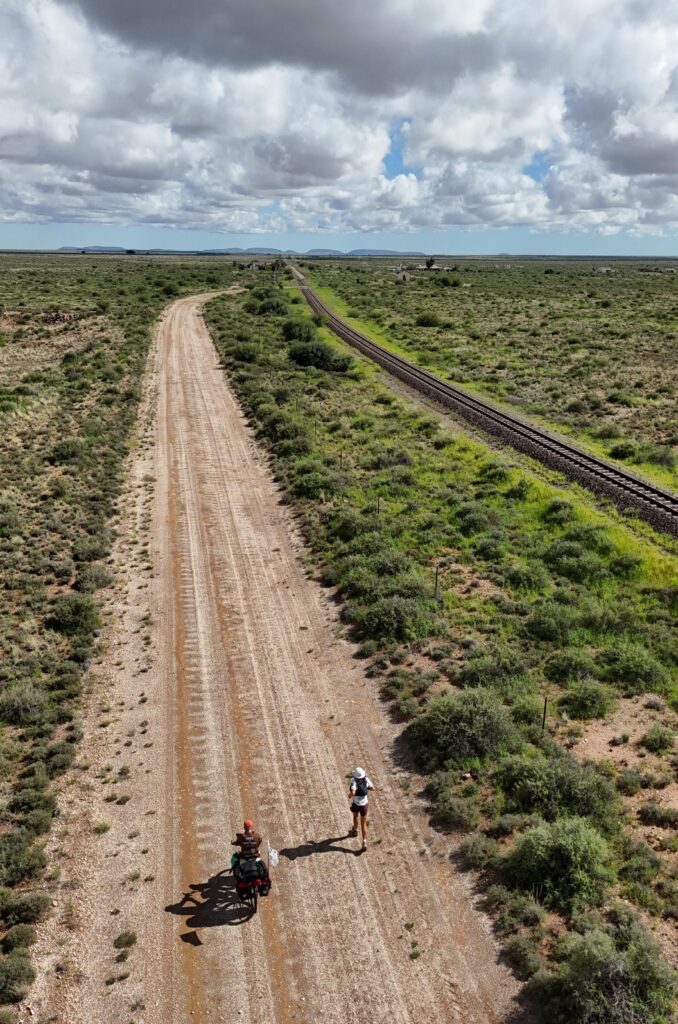
“But this time (with an adjusted route through Botswana and Zambia), we’re coming at it smarter. I’ve got better at understanding what my body needs, focusing a lot on stretching and strengthening, and making sure I get plenty of rest. Here’s hoping my hip keeps up. We’re totally determined to see this through.”
The brothers’ minimalist approach, however, came under strain recently when Max went down with a fever in Zambia, placing the record-breaking component of the mission under threat. But the team’s partnership-building talents paid dividends when help arrived in the form of Emma Maeyer, part of another Trans-Africa sibling combination.
Emma and her brother Oscar had cycled from her parents’ home in Berlin, Germany, to Cape Town last year. The pair met Fritz and Max before the latter’s departure from Cape Town in March and accompanied the brothers on the first days of their journey.
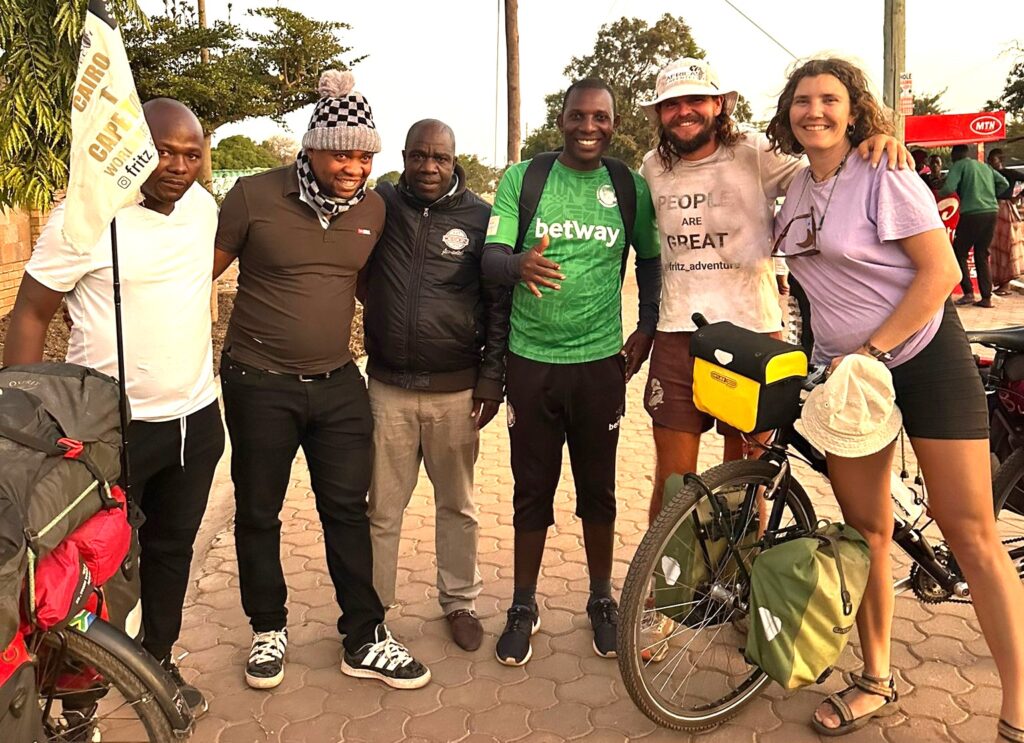
Emma returned to join the expedition in Zambia just as Max became incapacitated, allowing Fritz to continue with his run as Emma tracked him with her bicycle. Max was able to recover his sangfroid and Emma has provided much needed support for the team as they continue northwards.
Ultimately, the brothers’ Africa quest represents a battle where the physical, mental and spiritual are aligned in harmony to achieve the end goal, echoing one of the most important themes of the Olympic movement – achieving balance between body, will and mind.
And with a nod to the spirit of Paris 2024, Fritz and Max have also taken on board the remaining Olympic themes – the joy of effort in sport; fair play; respect for others; and the pursuit of excellence – and have connected with African Olympians on their journey.
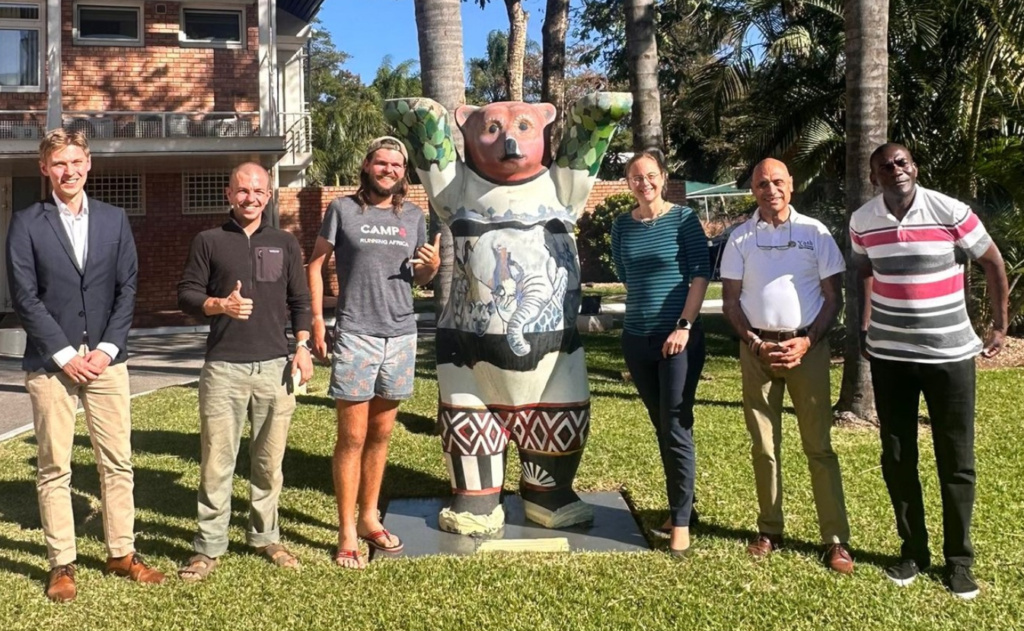
Steve Evans, executive member (special projects) for South Africa Olympians Association, introduced Fritz and Max to Jonathan Chipalo, President of the Olympians Association of Zambia, who hosted the team in Lusaka last month.
“Fritz arrived in Zambia at Livingstone on 14 th May and reached Lusaka ten days later,” said Chipalo, who raced the 400m for Zambia at the 1988 Summer Olympics in Seoul. While in Lusaka, the brothers were taken to some the country’s important tourist sites and met government and civic leaders, Olympians and officials from Zambia’ National Olympic Committee.
“This expedition is an inspiration to many runners in Zambia,” Chipalo continued. “It has been huge on social media, branding Zambia’ tourist attractions and sending a message to the outside world on the warmth of Zambia’s welcome and how safe it is to travel throughout Zambia.”
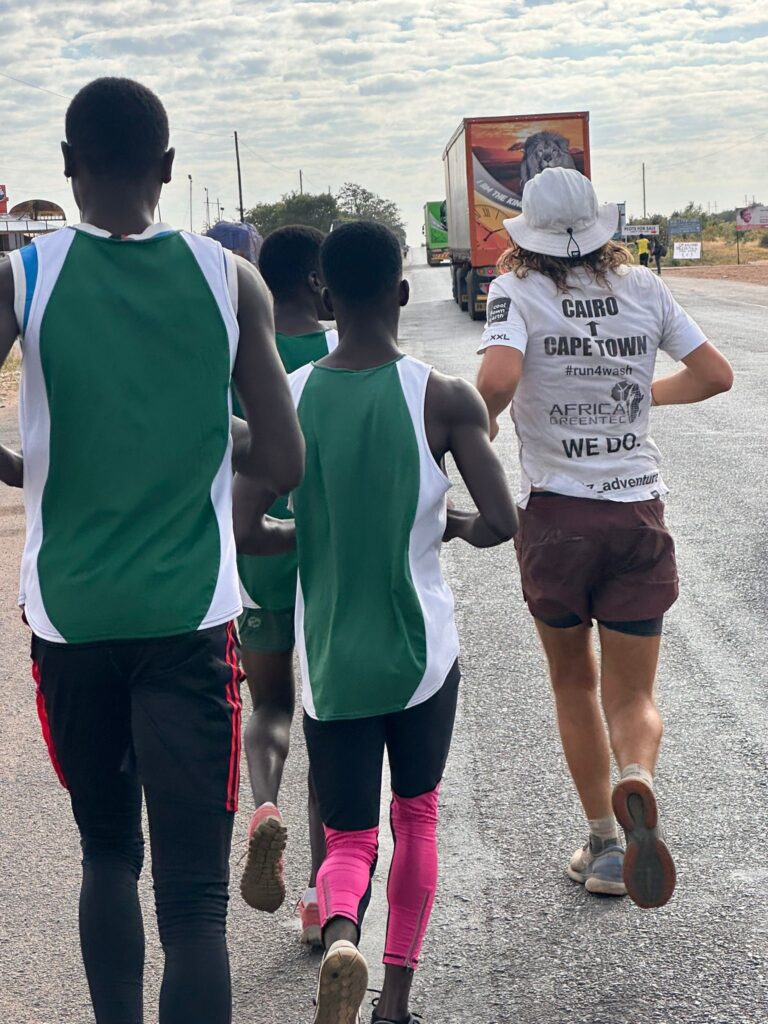
Despite many challenges, including geo-political uncertainty, injury and illness, mental challenges, bicycle breakdown, weather conditions (heat and rainfall), social demands on the expedition, competing with large fast trucks on narrow roads and water provision and quality amongst others, Fritz and Max remain confident of a successful outcome sometime before the end of the year.
The expedition can be followed on https://www.instagram.com/fritz_adventure/
Fun Facts
Typical Daily Nutrition for Fritz
Breakfast: Müsli… a lot of oats nuts and stuff
Water water water 💧
Electrolytes
Salt tablet
Lunch: fries, watermelon, beans, beetroot, coke
Water water water 💧
Electrolytes
Break: fat cake, coke, cold water
Water water water 💧
Dinner: couscous + soy mince, Heineken 0.0
Day Seventy Expedition Audit (northern Zambia, approaching Mkushi Farming Block)
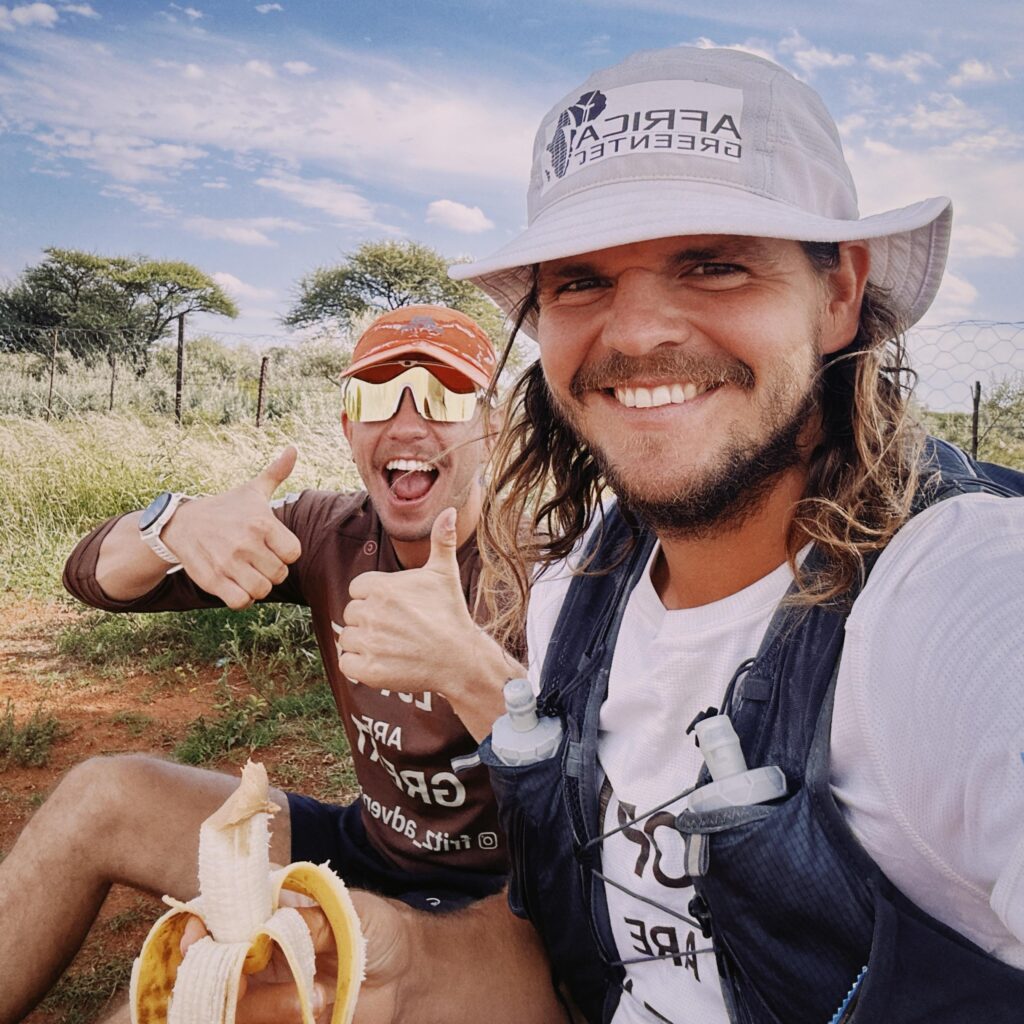
3229km completed (out of 11 000km)
50km per day on average (including rest days) and on track to finish in 230 days
59 running days; 7 rest days; 4 days injuries; 1 mental breakdown
3 countries (South Africa, Botswana, Zambia)
2 days sick in tent; 3 near-quits
2 flat tires; 5 pairs of shoes worn out
2 chased by dogs; 1 chased by elephants
177 cokes; 19 jars of peanut butter.


